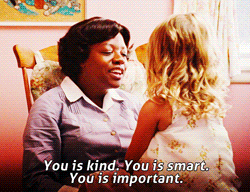Hey everyone! Today, I want to dive into a thought-provoking idea inspired by none other than the legendary playwright William Shakespeare. We often hear about human rights in terms of freedom, equality, and justice, but have you ever considered the profound notion that simply “to be” is a fundamental human right?
Shakespeare, in his plays and sonnets, delved deep into the complexities of human existence, including the basic right to exist and to be acknowledged. Let’s unpack this idea.
One of the most iconic lines that comes to mind is from his play “Hamlet.” You might recall the famous soliloquy that begins with “To be, or not to be, that is the question.” Hamlet, grappling with existential questions and the burdens of life, ponders the value of existence itself. This phrase has transcended centuries to become a universal symbol of human introspection and existential inquiry.
In this soliloquy, Shakespeare taps into a fundamental aspect of humanity—the right to exist and the freedom to contemplate one’s own existence. “To be” signifies more than mere existence; it encompasses the right to live authentically, to express oneself, and to pursue happiness in one’s own way.
Shakespeare’s insights resonate strongly with the idea of human rights. The notion that every individual has the right to their own existence, free from oppression or undue influence, underscores the essence of what it means to be human. This right extends beyond physical survival to include the right to think, to feel, and to aspire.
Moreover, Shakespeare’s characters often navigate societal expectations and constraints, emphasizing the struggle for individual agency and self-determination. Think of Juliet defying her family’s wishes for love, or Prospero seeking redemption and freedom in “The Tempest.” These narratives reflect the ongoing quest for human rights and autonomy.
In our modern world, where human rights are enshrined in international law and championed by activists, the concept of “to be” as a human right takes on profound significance. It challenges us to recognize and respect each person’s inherent worth and dignity, regardless of background or circumstance.
As we reflect on Shakespeare’s timeless wisdom, let’s carry forward this notion that “to be” is not just a philosophical abstraction but a living principle that shapes our societies. Let’s strive to create a world where every individual has the space to be themselves, to pursue their dreams, and to contribute meaningfully to the tapestry of human experience.
So, the next time you hear the phrase “to be is a human right,” remember the enduring words of Shakespeare and the profound implications they hold for our understanding of human dignity and freedom. Let’s honor this right in our actions and advocacy, ensuring that all individuals have the opportunity to live fully and authentically.
What are your thoughts on this interpretation of Shakespeare’s work? I’d love to hear your insights and reflections in the comments below. Together, let’s celebrate the power of literature to illuminate our understanding of human rights and the timeless truths of the human experience.
Until next time, keep exploring the world of ideas and embracing the beauty of “to be”!






